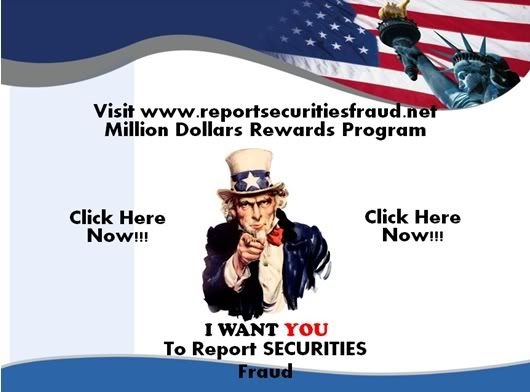Washington, D.C., March 19, 2013 — The Securities and Exchange Commission today announced charges against a financier masquerading as a sophisticated fund manager who defrauded investors seeking to acquire highly coveted pre-IPO shares of Facebook and other social media companies.
An investigation by the SEC’s Enforcement Division found that Craig Berkman, a former Oregon gubernatorial candidate who now lives in Florida, touted to investors that he had special access to scarce sources of pre-IPO stock in Facebook, LinkedIn, Groupon, and Zynga. Instead of purchasing shares on investors’ behalf as promised, Berkman misused their investments to make Ponzi-like payments to earlier investors, fund personal expenses, and pay off claims against him in a bankruptcy case.
The SEC’s Enforcement Division also charged John B. Kern of Charleston, S.C., for his participation in the fraud as legal counsel to some of Berkman’s companies. When investors in Berkman’s phony Facebook fund began questioning what happened to their money after Facebook’s IPO occurred, Kern falsely assured them that their money was used to purchase pre-IPO Facebook stock being held for them by unnamed counterparties.
“Berkman blatantly capitalized on the market fervor preceding highly anticipated IPOs of Facebook and other social media companies to fleece investors whose cash flow he treated like an ATM to fund his own living expenses and pay court-ordered claims to victims of his past misdeeds,” said Andrew M. Calamari, Director of the SEC’s New York Regional Office.
Sanjay Wadhwa, Senior Associate Director of the SEC’s New York Regional Office, added, “Lawyers and others who help shady operators commit fraud in the securities markets will be held accountable for their supporting roles. Kern was duty-bound to look out for investors’ best interests, but instead he was actively colluding with Berkman to prevent investors from discovering the fraud.”
In a parallel action, the U.S. Attorney’s Office for the Southern District of New York today announced criminal charges against Berkman.
According to the SEC’s order instituting administrative proceedings, Berkman raised at least $13.2 million from 120 investors by selling membership interests in limited liability companies that he controlled. Berkman defrauded investors in three different sets of offerings. He falsely told the first set of investors he would use their money to acquire pre-IPO shares of several social media companies. He misled the second set of investors into believing that their money would be used to purchase pre-IPO shares of Facebook or acquire a company that held pre-IPO Facebook shares. In the third offering, Berkman falsely told investors that he would use their money to fund various new large-scale technology ventures.
The SEC’s Enforcement Division alleges that Berkman misappropriated virtually all investor funds that he raised. He did use $600,000 to purchase a small interest in an unrelated fund that had acquired pre-IPO Facebook stock, however that purchase did not provide any company affiliated with Berkman with ownership of Facebook shares. One of Berkman’s companies nevertheless used a forged letter about that investment to falsely represent to investors that it owned nearly a half-million shares of Facebook stock. Upon discovering the forgery, the fund informed Berkman that it was immediately terminating and liquidating his company’s interest, leaving it without even an indirect interest in Facebook shares.
The SEC’s order details a recidivist history for Berkman. The Oregon Division of Finance and Securities issued a cease-and-desist order and $50,000 fine against Berkman in 2001 for offering and selling convertible promissory notes without a brokerage license to Oregon residents. In June 2008, an Oregon jury found Berkman liable in a private action for breach of fiduciary duty, conversion of investor funds, and misrepresentation to investors arising from Berkman’s involvement with a series of purported venture capital funds known as Synectic Ventures. The court entered a $28 million judgment against Berkman. In March 2009, Synectic filed an involuntary Chapter 7 bankruptcy petition against Berkman in Florida for his unpaid debts arising from the 2008 court judgment. The parties to the bankruptcy proceeding reached a settlement with Berkman.
According to the SEC’s order, instead of using his own money to satisfy these past claims, Berkman spent more than $5.4 million in funds from investors in his pre-IPO offerings to make the payments in the bankruptcy settlement. Berkman also made $4.8 million in Ponzi-like payments to earlier investors in the pre-IPO scheme, falsely telling some of them that they had made money on their investment when in reality he never purchased shares for them. Berkman used approximately $1.6 million of investor money to make large cash withdrawals and pay his own dining and travel expenses.
According to the SEC’s order, three months after Facebook’s IPO transpired, Kern wrote and signed a memorandum addressed to concerned investors in Berkman’s purported Facebook fund. Kern’s memorandum stated that a counterparty has “repeatedly affirmed that it has the requisite [Facebook] shares and reconfirmed to us that we have the securities interests to which we subscribed.” Kern knew this statement was false because the “counterparty” had told Kern that it was terminating Berkman’s company’s interest in the fund because of the forged letter. Kern received nearly $300,000 out of the offering proceeds.
The SEC’s order alleges that Berkman and his affiliated entities committed and caused violations of the antifraud provisions of the federal securities laws, and that Kern caused and aided and abetted the violations. The administrative proceedings will determine whether a cease-and-desist order should be issued and what, if any, remedial action or financial sanctions are appropriate and in the public interest.





















